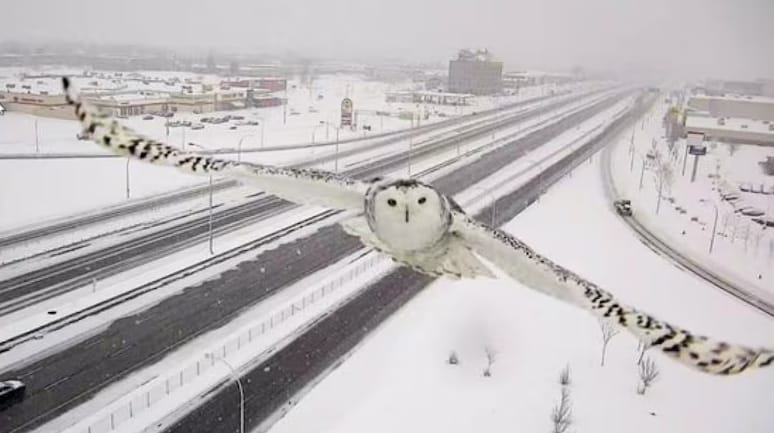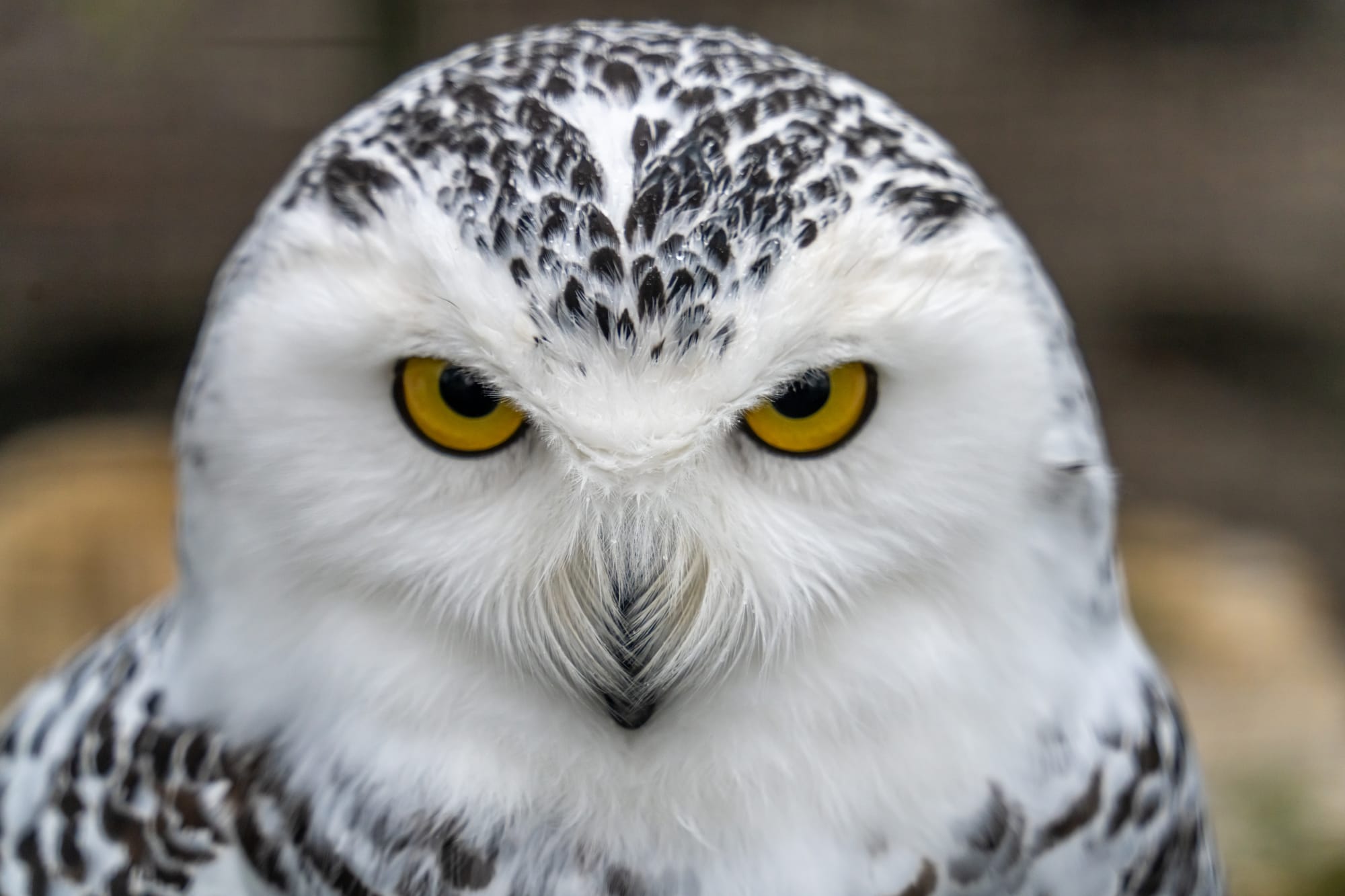Follow the Spark, Borrow the Tools
Torn between “follow your dream” and “stick to your skills”? This essay blends Cal Newport’s realism with Joseph Campbell’s “bliss,” plus a snowy owl cameo, to show how to start small, keep your roof, and build momentum.

Why You Should Still Follow Your Dreams (Even If You Have No Tools or Skills)
I didn’t plan to flinch. I was sipping coffee, half-listening to a creator I enjoy watching, when the advice slid in with the weight of a commandment: “Don’t follow your dreams. Follow your tools.”
On the surface, it sounded sane, adult, even noble. Build on what you already do well. Stack skills. Be practical. But something in me cringed. Maybe because if a younger Chris Martin from Coldplay had followed his tools instead of his dreams, one of my favorite bands might not exist. Maybe because the kids in Nairobi who build rockets from scrap metal would still be waiting for permission. Or maybe because I recognized the comfort in that advice, the way it tucks you safely into what you already know and calls it wisdom.
The logic is tidy. The philosophy is not.
The Day Job That Became a Passion

If you’ve been around my blog, you know I keep a soft spot for storytelling. I also keep a day job in IT. I didn’t choose IT out of early, incandescent passion. I chose it because career counselors said, “This is the future. It’s stable.”
Cal Newport- computer-science professor and author of So Good They Can’t Ignore You- would nod. His core thesis, “Follow your passion” is unreliable career advice. Passion often follows mastery, not the other way around. Get good first, meaning will meet you there.
In my case, he wasn’t wrong. I learned the tools. I got competent. Competence became confidence. Confidence felt good. Some days it even felt like love.
But there’s a limit to that story. While my hands learned to solve problems, some other part of me was keeping a private ledger of unfinished business.
The Passions That Don’t Quiet Down
When I was ten, I had two obsessions: space and stories. I’d build sprawling LEGO sets, miniature studios Spielberg might have smiled at and cast myself as the astronaut-director of a universe. I’d stage liftoffs in a bedroom that smelled like plastic and imagination. Those scenes never really left. They just went quiet under rent, routine, and a calendar full of grown-up obligations.
Newport explains how skills can kindle passion, and he’s right, but he says less about the passions that predate skill, the ones that survive long winters and still knock at the door. Those don’t ask for permission. They wait. And if you ignore them long enough, they come back in other forms, such as irritability, envy, or sudden ache when you hear a song that sounds like a life you didn’t live.
What If You Don’t Have a Dream or Passion?

Then you don’t have to search for one like a lost passport. Plenty of good lives are built on craft, care, and community. If tranquility, family, or service is your north star, follow that star. You don’t need to borrow heat from someone else’s fire.
Ancient thinkers had their say about passion long before podcasts and YouTube.
- Aristotle thought fulfillment came from living in line with your nature, though most of us drift toward pleasure or praise if we’re not careful.
- Epicurus argued for simple joy and tranquility; grand passions weren’t required for a good life.
- The Stoics were suspicious of passion altogether, worrying it distorts reason and yanks us off our feet.
- Plato carved the soul into appetitive (comfort), spirited (honor/drive), and rational (truth/meaning). Different engines; different journeys.
The point? Not everyone needs a capital-P Passion. If “follow your dreams” rings hollow, that’s not a moral failure. You might be wired for duty, craft, community, or calm. Beautiful paths, all of them.
But if something keeps tapping your shoulder, gently, repeatedly, often at inconvenient times, consider that you’re not being nagged, you’re being invited.
The Owl at My Window

One winter afternoon, an enormous snowy owl landed on the streetlamp outside my office. A snowy white owl, white as its landscape. Silent as a held breath. I had never seen such a majestic creature. It stared in with a steadiness that felt like a question. The next day it came back. The day after that, too. And then, gone. I haven’t seen it since.
In Inuit and Native American lore, owls sometimes arrive as messengers, guides that see in darkness, that show up when something in you is ready to turn. Whether or not you buy that, you know the feeling where life leaves you a symbol you can’t quite explain, and suddenly the ordinary day has a seam you want to pull.
Now, I'm a rationalist by trade; I know this was likely a beautiful coincidence. But the function of a symbol isn't its probability, it's its power to jolt us into a new perspective. I took the owl as a reminder; signals aren’t always analytical.
Sometimes it lands feathered and silent, asking, are you paying attention? To this day, the white owl lives in me, steadying its gaze, urging me to finally pursue what I’ve kept caged.
Enjoying the journey so far?
If you like deep dives into creative chaos, productivity under pressure, and nerdy lessons from real-life experiments, subscribe to get future posts delivered right to your inbox. Subscribe Now
The Dangerous Comfort of “Tools First”
Here’s what “follow your tools” really offered me: a lifetime warranty on not looking foolish. If I only stack skills I already have, I’ll never be a beginner again. I’ll never write a clumsy first script. Never frame a shaky first shot. Never set out for a destination where I can’t see the road.
That’s safe. It’s also a slow death for creativity and dreams.
Richard Feynman once wrote to a discouraged student: “No problem is too small or too trivial if we can really do something about it.” That line punctures perfectionism. It says: start small, start badly, but start where your hands can actually touch the world. When the dream feels too big, shrink the entry point, not the dream.
How I Blend Bliss and Blueprint
The philosopher Joseph Campbell encouraged us to "follow your bliss" as a compass for our journey. The productivity expert Cal Newport, however, provides the map, advising us to "get so good they can't ignore you" through deliberate skill-building.
I used to treat those as rival camps. Now I use them as a two-key safe:
- Bliss chooses direction. It tells me where to aim. (Stories. Cameras. Space.)
- Blueprint builds the road. It tells me how to walk. (Keep the day job. Add one durable skill. Practice in public. Ship small work.)
In practice, this looks boring and brave at the same time. I keep my IT career humming, the stability that buys me time, and I carve out hours at night to write, storyboard, shoot, and learn. I traded some scrolling for sentences. I swapped one more TV episode for an hour with a draft. I learned to accept that the first version of anything I love will embarrass me a month later.
That’s not a failure. That’s the price of entry.
How to Start Without Gear (or Nerve)

The modern world tells us to prepare endlessly. Gear lists. Masterclasses. Optimization. It’s a trap disguised as diligence and procrastination. I’ve fallen into it too, with hours researching cameras instead of filming the scene sitting in my mind.
Start with what you have. A phone camera can tell a better story than a cinema rig if you actually tell the story. Your first video doesn’t need a drone; it needs a shot that means something to you. Your first essay doesn’t need the “perfect voice”; it needs your honest one. Tools sharpen the work. They don’t begin it.
So I began with the smallest thing I could commit to finishing: a scene written in one sitting, a page edited before bed, a 60-second video for a contest. Every small completion bought me enough momentum to attempt a slightly less small one. The tools came later, exactly when they were earned.
The Quiet Economics of a Dream and My Process

There’s a practical backbone to all this. Dreams don’t pay up front, and bills don’t care about your muse. So I did not frame my passion as a money-making opportunity. Instead, I’m in it for the long haul.
- My Income strand: My IT role funds my life and my art.
- Apprentice strand: Each day, I practice one skill: framing, pacing, dialogue, rhythm. Nothing fancy, just reps.
- Show the World: Each week, I publish small, imperfect things. Not to go viral. To keep my creative lungs working.
This isn’t romantic. It’s sustainable. It’s also how you avoid resenting the dream for the stress it creates.
The Real Reason to Ignore “Don’t Follow Your Dreams”
Because it trains you to ignore your own data. You have a lifetime of private evidence, threads that keep resurfacing, things you do without being asked, obsessions that steady you when life shakes. When advice tells you to trust abstractions over that evidence, it’s not advice; it’s anesthesia.
Following a dream doesn’t mean burning your life down. It means reallocating attention. It means giving the thing that keeps knocking a place in your day, even if it’s small and messy. It means letting yourself be a beginner where you care most. Which is terrifying. And freeing.
What My Snowy Owl Taught Me

My unexpected visitor didn’t teach me narrative structure or how to meter light in a dim kitchen. It taught me to notice, to treat attention as a responsibility. If I keep seeing stories everywhere, maybe I should stop pretending I don’t. If I keep feeling calm when I video edit, maybe I should honor that. If a white bird stares me down through a winter foggy window, maybe I should at least meet its gaze.
Since then, I’ve been rearranging my days, not to chase a fantasy career, but to make regular deposits into the account that makes me feel most alive. Some weeks it’s a page. Some weeks it’s a shot list. Some weeks it’s nothing but thinking, and I forgive myself and begin again.
If You Need a Rule, Use This
Follow the spark; borrow the tools.
Let passion pick the direction; your true north doesn’t need to be efficient and let craft build the trail. Keep your roof. Keep your health insurance. Keep your people. Keep your word. But don’t mistake stability for a verdict on not following your passion.
Start with a trivial, solvable piece, Feynman’s invitation, and finish it. Then another. Let small completions do the PR for your nervous system. Confidence is a byproduct of evidence. Give yourself evidence.
Why I’m Writing This at All

Because some advice sounds smart until it sinks in. “Follow your tools” is a neat way to close the door quietly on the part of you that wants more than competence. Tools help you work. They don’t tell you why the work matters.
I still like Newport. I still read Campbell. I keep a socket set next to my notebook. The older I get, the more I believe it’s not either/or. It’s first/then. First, listen to what won’t be quiet. Then, practice until it sounds like you.
The owl hasn’t come back. That’s okay. I know where to look now.
I keep the day job. I keep the dream. And most days, I keep the promise to give the dream an hour it can count on. That hour is where I remember who I am when nobody’s asking for a ticket or a deliverable. That hour is where I get to be the kid with the LEGO soundstage and the cardboard rocket, only now with a better editor and a budget for coffee.
Tools will help you ship. Dreams will teach you why you showed up in the first place. And you don’t have to choose between them to begin.
I’ll keep listening for owls, and showing up for an hour a day.
Stay grounded. Follow your passion. Be kind.